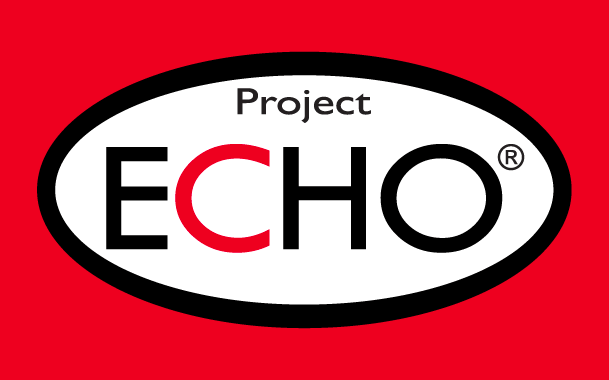SOURCE Program ECHO – East Africa
March 2020 - November 2020
- Volunteer Recruitment, Management, and Retention: Part 1
Many civil society organizations struggle with a lack of human resources to support their mission and operational activities. And yet, there are some organizations who rely heavily on volunteers and do so successfully. How do they manage this and what can we learn from their experiences and approaches?
Didactic Presenters: Dustin Perchal
View Resources:
SOURCE Program ECHO - East Africa - 3-10-2020 - Recording - Tapping into Corporate Philanthropy
If asked about why their organization should be supported financially, many cancers focused civil society organizations will talk at length about the growing cancer burden in the country and what lack of access to quality services means for their beneficiaries. While all of that is true, is this the only thing potential corporate donors want to hear? How do you align your efforts to what matters to corporates? And how do you start to build an affinity between what your organization does and the way potential corporate partners want to present themselves in the world besides just achieving their bottom line? Not all corporates approach corporate social responsibility the same way so understanding where they are coming from quickly allows your organization to cultivate relationships that will bear fruit instead of waste your time.
Didactic Presenters: Danielle Maxwell, MS, Joseph Wang'endo, MBA
View Resources:
SOURCE Program ECHO - East Africa - 4-14-2020 - Recording - Tax Compliance for Cancer Civil Society Organizations
Often civil society organizations inadvertently fill out the wrong tax forms that are not compatible with their registration status. And achieving tax exempt status can be a long and complicated process so organizations may simply avoid this step. However, when organizations file incorrectly, incompletely, or are late, they can end up paying hefty fines that put a strain on already limited resources. So, what are the strategies that some successful organizations have used in the past to achieve and maintain this status?
Didactic Presenters: Gedion Mumo Mwaluku - Establishing and Enhancing Purposeful Relationships
Regardless of the size or the level of maturity of organizations, all have the potential to contribute to cancer control work in the countries where they operate. To achieve this, a lot of coordination has to happen – and this coordination is driven by organizations with a mindset and openness for collaboration. And increasingly, donors are looking for strategies that embody coordination and collaboration rather than siloed competition. Network organizations such as KENCO and UCS play a critical role in encouraging and steering collaboration among members to maximize resources and avoid the duplication of efforts and amplifying the impact of such efforts.
Didactic Presenters: Paul Ebusu, Kristen Solt, Christine Mugo-Sitati
View Resources:
SOURCE Program ECHO - East Africa - 6-9-2020 - Recording - Brand/Risk Management: Protecting and Utilizing Your Biggest Resource
It can feel like an uphill battle to identify funders and corporate supporters for organizations. So, the impulse may be to dive into collaboration with any entity who expresses interest in funding your organization. But regardless of age, notoriety or financial status of an organization, it is imperative to always know your organization’s value and protect your reputation and brand. Not all partnerships in the long-run are worth the funding and association available today. At the same time, it can be ok to choose to enter into riskier partnerships but at all times, your organization needs to make sure it understands the other organization’s motives and their standing in the community. Your organization needs to always clear on its guardrails, and the expectations it sets, communicates, and maintains. Your social capital (reputation + public trust + credibility) is all you have and it’s what you sell-so don’t sell it short!
Didactic Presenters: Mia Hahn
View Resources:
SOURCE Program ECHO - East Africa - 7-14-2020 - Recording - Needs Assessments to Run Great Programs
Depending on the focus of a program, the needs assessment that informs the design of the program can be conducted at the regional, national, community, or facility level. No effective program can exist without having researched the need it aims to address. But what does it mean to conduct an effective needs assessment? What are the ways to keep the needs assessment process appropriately-scoped so that it actually gets done and provides useful information to create great programs?
Didactic Presenters: Christine Kalume, Liam Spurgeon
View Resources:
SOURCE Program ECHO - East Africa - 8-11-2020 - Recording - Collecting and Making Sense of Data for Program Improvement and Accountability
The term “data-driven decision-making” may sound overwhelming both for nascent and established organizations. However, no programs should function without collecting relevant information about the program and the changes it intends to make in the community it serves. The capacity of an organization to collect relevant data and analyze and use those data for decision-making helps it to achieve its goals. Data collection and reporting can increase an organization’s visibility in the public sphere. But how much data is enough? Where can data come from? And what exactly needs to be done once data are collected?
Didactic Presenters: Shahid Umar, PhD, Megan Cotter, MPH
View Resources:
SOURCE Program ECHO - East Africa - 9-8-2020 - Recording - Developing Successful Proposals to Foundations
Foundation funding is an important funding source in health, especially in settings where government funding for services is limited. How do organizations go about identifying the right foundations to target and how is the pitch to a philanthropic funder different from a pitch to a corporate funder?
Didactic Presenters: Jessica Palmer
View Resources:
SOURCE Program ECHO - East Africa - 10-13-2020 - Recording - Volunteer Recruitment, Management, and Retention: Part 2
Having volunteers with a diverse set of skills doing useful and meaningful work for an organization is a win. However, retaining volunteers over time can be a challenge since the organizations have limited resources and volunteers have motives for volunteering that may not lend themselves to long-term commitments. But is a change in volunteers always bad? How do successful organizations anticipate and prepare for volunteer turnover? How do successful organizations meet volunteers where they are while ensuring that having volunteers as a part of their workforce ultimately benefits the organization as opposed to distract it from other priorities? And what are the opportunity costs to organizations that do not prepare for volunteer turnover?
And finally, how do organizations meaningfully appreciate their volunteers so as to promote volunteer satisfaction, affinity towards the organization, and potentially retaining them as long as possible?
Didactic Presenters: Sandy Cipriano
Our Experts

Sandy Cipriano

Megan Cotter, MPH

Paul Ebusu

Mia Hahn

Christine Kalume
Independent Consultant

Jessica Kilonzo

Danielle Maxwell, MS

Christine Mugo-Sitati

Gedion Mumo Mwaluku

Jessica Palmer

Dustin Perchal

Kristen Solt

Liam Spurgeon

Shahid Umar, PhD


